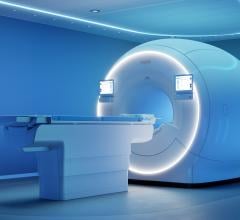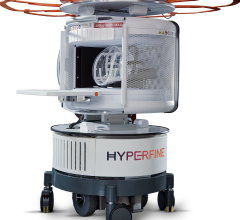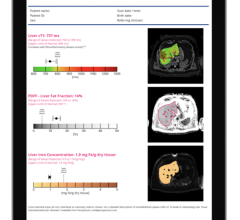July 31, 2013 — Magnetic resonance imaging (MRI) scans of children who have had chemotherapy can detect early changes in their hearts, according to research findings in BioMed Central's open access journal Journal of Cardiovascular Magnetic Resonance.
Chemotherapy with anthracyclines, such as Doxorubicin, is one of the most effective treatments against many types of cancer, including leukemia and Hodgkin's lymphoma, breast, lung and ovarian cancer. However it can also lead to irreversible heart damage, which may not be apparent until several years after treatment. Being able to detect this damage at an early stage, in order to initiate preventative therapy of affected people, is especially important in children.
Researchers from the University of Alberta performed MRI scans on children and young adults (aged 7 to 19) at the Stollery Children's Hospital who were in remission following anthracycline treatment. They found that they were able to identify changes in heart muscle related to the formation of fibrosis, using an emerging MRI method called T1 mapping, even in children whose heart function was apparently normal by ultrasound.
The study funded by the Women's and Children's Health Research Institute led by Edythe Tham, M.D., and Richard Thompson, M.D., said: "In childhood cancer survivors, MRI changes were related to anthracycline dose given to the children. These changes are also mirrored by thinning of the heart wall and a reduction in the exercise capacity. By detecting these changes early we can only hope that future research using these techniques may guide early identification and treatment in attempts to delay the onset of heart damage in children who have survived cancer."
For more information: www.biomedcentral.com


 January 21, 2026
January 21, 2026 








